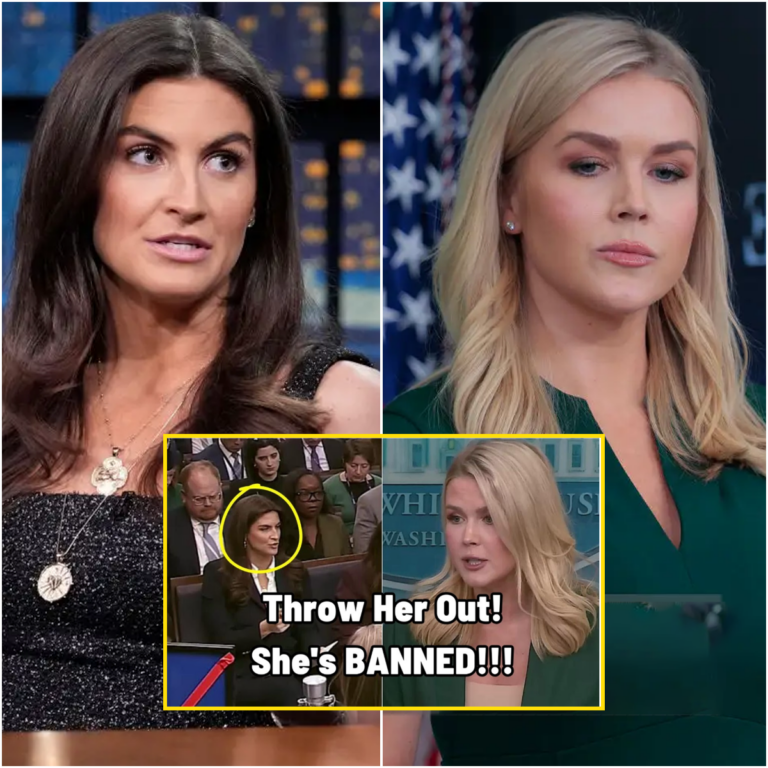“Karoline Leavitt BANS CNN’s Kaitlan Collins from White House Press Briefing After Tense Exchange Over Classified Information Leak — Here’s What Happened!”
In a dramatic turn of events during a recent White House press briefing, White House spokesperson Karoline Leavitt banned CNN’s Kaitlan Collins from asking further questions after what was deemed an inappropriate line of inquiry regarding a sensitive military leak. The heated exchange, which erupted over leaked details of a military operation involving F-18 fighter jets and Tomahawk missiles, has set the media world on fire and raised questions about the limits of journalistic inquiry in the current political climate.
The controversy began with the revelation that a private messaging thread among high-ranking administration officials included specific details about a military strike. Among the most concerning aspects of the leak were the exact timing of military actions—31 minutes before a strike—and details about the weapons involved. This disclosure raised alarm bells about the potential compromise of national security and the integrity of classified information.
During the briefing, Karoline Leavitt strongly defended the Trump administration, denying that any classified information had been leaked. Leavitt cited a statement from Secretary of Defense Pete Hegseth, who clarified that the information shared was not classified. She emphasized that the communication represented a policy discussion, not operational details, which would typically be considered classified. Despite her firm stance, journalists, including Collins, continued to press for clarification about how such specific details could be considered non-sensitive.
It was during this back-and-forth that tensions escalated. Collins asked a pointed question about recent firings within the Department of Justice, suggesting that the administration was not handling the leak appropriately. Leavitt, visibly frustrated, responded by banning Collins from asking any further questions, calling the inquiry “stupid” and accusing the CNN reporter of sensationalism. This unprecedented move by a White House official shocked many, as press briefings are typically a space for open dialogue, even amid tensions.
The situation escalated further when Vice President Mike Pence weighed in, publicly criticizing European nations for their lack of contribution to global security efforts, a sentiment that echoed President Trump’s previous comments. Meanwhile, Leavitt reiterated the administration’s confidence in its National Security team, asserting that no dismissals would occur as a result of the leak. She also targeted the media’s coverage of the incident, particularly criticizing reporter Jeffrey Goldberg for what she called biased and politically charged reporting.
In an effort to quell growing concerns, Leavitt reassured the press that President Trump and his defense team prioritized the safety of American service members and that no actions would intentionally compromise operational security. She also pointed to the successful military actions taken against Houthi targets as evidence of the administration’s effective management of national security issues.
Despite these reassurances, skepticism remains, especially concerning the definition of what constitutes classified information. The debate over the leak and its potential consequences continues to stir controversy, as questions linger about the future handling of sensitive communications.
As investigations continue, Leavitt’s decision to ban Kaitlan Collins has brought the issue of press freedom and transparency into sharper focus, with many questioning whether such actions are warranted or an overstep by the administration. This dramatic press briefing serves as a stark reminder of the tensions between the media and the White House, highlighting the growing polarization in how national security issues are addressed and reported. The fallout from this incident promises to fuel continued debates over the role of journalists in holding power to account and the limits of press access in an increasingly charged political environment.


